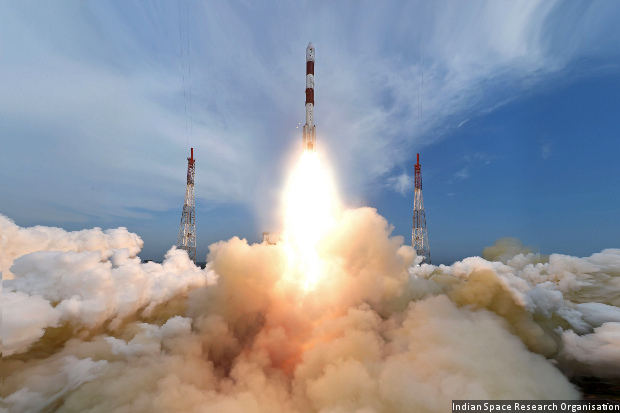- Joined
- Apr 29, 2015
- Messages
- 18,416
- Likes
- 56,946
India's Commercial Space Program: What Makes It A Thriving Market

Rocket lift off. (Image used for representation only.) tpsdave / Pixabay CC0

Rocket lift off. (Image used for representation only.) tpsdave / Pixabay CC0
Earlier this week, on Monday, a rocket with eight satellites was launched in one go by India. In a similar launch in June, a standalone rocket was used to send 20 satellites in a single mission, a feat that is counted amongst the most ambitious programs of the country. A number of the satellites launched were foreign, and the recent event increases the tally of foreign satellites launched by the nation to 79.
India seems to be clearly marching ahead in its space ambitions, and the country has already earned more than $120 million by launching satellites belonging to other nations, not to mention securing many other such deals.
The country's capability of launching numerous satellites simultaneously in a single mission has definitely cemented its footing in the global market. There are numerous private companies that develop satellites but are unable to launch them independently due to lack of funds. As a result, those firm piggy back on agencies like theIndian Space Research Organisation (ISRO), due to the latter's launch facilities.
According to ISRO, the reason why they are sought after is because their operations are cost effective. "We will be able to maximize our returns by making use of the excess space available in the vehicle while we are launching the satellites we make for our national requirements," adds AS Kiran Kumar, ISRO chairman.
One more thing that works in ISRO's favor is its ability of meeting deadlines and also the frequency of its launches. In fact, as per reports, the country plans on having as many as 12 launches in a year, a number that has clearly doubled since 2015. However, it is not always a smooth ride to tap into the foreign market due to regulatory hurdles as well as legal, contractual and export control complications. There is also steep competition, not only from other countries with advanced space programs but also private firms like Elon Musk's SpaceX.
Another detractor that is holding back India from raking in more space business is the fact that its Geosynchronous Satellite Launch Vehicle (GSLV) is used only for launching domestic satellites and not foreign ones, which are usually restricted to the small and light satellites that can be launched using the Polar Satellite Launch Vehicle (PSLV) - which is what the current small operators have been making a beeline for. However, if India can start to successfully launch more of heavy satellites, then there is no holding it back from escalating in position in the space industry, or making billions of dollars in the process.







































